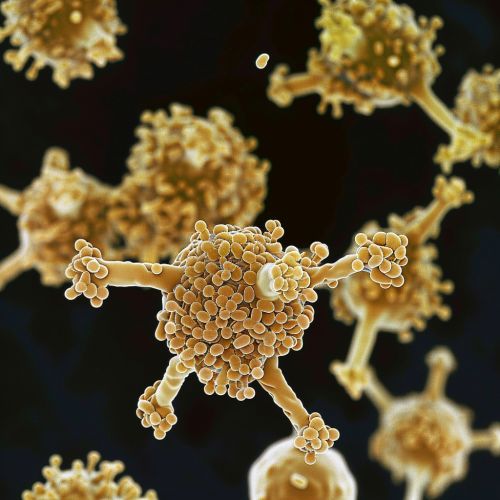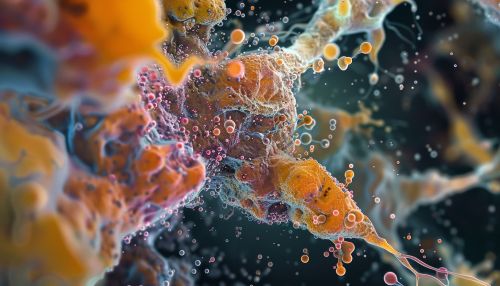Corticotropin-Releasing Hormone: Difference between revisions
No edit summary |
No edit summary |
||
| Line 3: | Line 3: | ||
Corticotropin-releasing hormone (CRH) is a [[peptide hormone]] involved in the body's response to stress. It is a crucial part of the [[hypothalamic-pituitary-adrenal axis]], a complex set of interactions among the [[hypothalamus]], the [[pituitary gland]], and the [[adrenal glands]]. | Corticotropin-releasing hormone (CRH) is a [[peptide hormone]] involved in the body's response to stress. It is a crucial part of the [[hypothalamic-pituitary-adrenal axis]], a complex set of interactions among the [[hypothalamus]], the [[pituitary gland]], and the [[adrenal glands]]. | ||
[[Image:Detail-78963.jpg|thumb|center|A microscopic view of the corticotropin-releasing hormone.]] | [[Image:Detail-78963.jpg|thumb|center|A microscopic view of the corticotropin-releasing hormone.|class=only_on_mobile]] | ||
[[Image:Detail-78964.jpg|thumb|center|A microscopic view of the corticotropin-releasing hormone.|class=only_on_desktop]] | |||
== Structure and Synthesis == | == Structure and Synthesis == | ||
Latest revision as of 09:23, 16 May 2024
Overview
Corticotropin-releasing hormone (CRH) is a peptide hormone involved in the body's response to stress. It is a crucial part of the hypothalamic-pituitary-adrenal axis, a complex set of interactions among the hypothalamus, the pituitary gland, and the adrenal glands.


Structure and Synthesis
CRH is a 41-amino acid peptide hormone, synthesized in the paraventricular nucleus (PVN) of the hypothalamus. It is derived from a larger precursor molecule, pro-opiomelanocortin (POMC), which is cleaved to produce CRH and other peptide hormones.
Function
CRH acts as a key regulator of the body's response to stress. It stimulates the secretion of adrenocorticotropic hormone (ACTH) from the pituitary gland, which in turn stimulates the adrenal glands to produce cortisol, a steroid hormone that helps the body respond to stress.
Role in Stress Response
In response to stress, the hypothalamus releases CRH into the portal system, where it travels to the anterior pituitary gland. Here, it binds to CRH receptors, triggering the release of ACTH. ACTH then travels through the bloodstream to the adrenal glands, where it stimulates the production of cortisol. This process is known as the hypothalamic-pituitary-adrenal (HPA) axis.
Clinical Significance
Abnormalities in CRH function or regulation can lead to a variety of disorders, including Cushing's syndrome, Addison's disease, and post-traumatic stress disorder (PTSD). In addition, elevated levels of CRH have been associated with depression and anxiety disorders.
